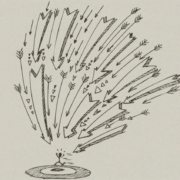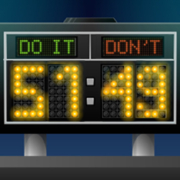Energy Thieves: Stress
The final energy thief is stress. It can range from everyday stress such as the traffic on the way to work to your kid having the flu and you have to find someone to watch him or miss work. We adapt to those types of stress, but what about the big stressors? Illness, for you or a loved one, or worse, death. A bad boss. Divorce. Or one that I think affects more of us than we want to admit: the fear that you’re not accomplishing what you wanted to in your life or that your future is precarious. These can steal your energy. Stress can make you sick.
The first step is to get your mind right. This has nothing to do with grief or other emotions that you’re going to feel; those are natural and necessary. But your kids still need braces or your spouse may need extended rehabilitation after surgery. Those are stressful. And you will still have to put food on the table and pay the rent or mortgage in addition to those stresses. With all that, you may be facing the busiest time at work or in your business. You may feel overburdened, but you don’t have the luxury of sitting and feeling bad for yourself. This is when you have to dig deep and step up.
You cannot let this thief called stress steal your energy just when you need it the most. It’s not going to be easy, but you can do it. You can’t perform at full throttle all the time, but you can pick the times during a day, a week, or a month and match your energy levels with the demand to accomplish those tasks. You have to perform at your best to get the job done, and you can train to do that. But before you begin, you have to get your head right to deal with stress.
One way to begin is to identify when you have to perform your best. In Tuesday’s post, I told you I chose this week to perform at a high level all week. I trained for it. Now I’m using the strategy to perform 14 hours per day this week until I finish the webinar tomorrow. I didn’t have to have maximal energy all 14 hours per day; just when the task at the moment required it. Most of the time, I needed to have the mental clarity to read, write, and speak at my best.
It began with deciding what I had to do this week. I wrote it all on the white board in my office to keep my focus. I wrote it in my planner so I can see it. I eliminated all the distractions I could to focus on this week. Once you have your mind right, you have to know what you have to do and when you’re going to do it. And just getting that figured out helps relieve the stress because the problems have been defined and you’ve decided to act. The training to achieve that will seem easy.
What are you prepared to do today?
Dr. Chet









